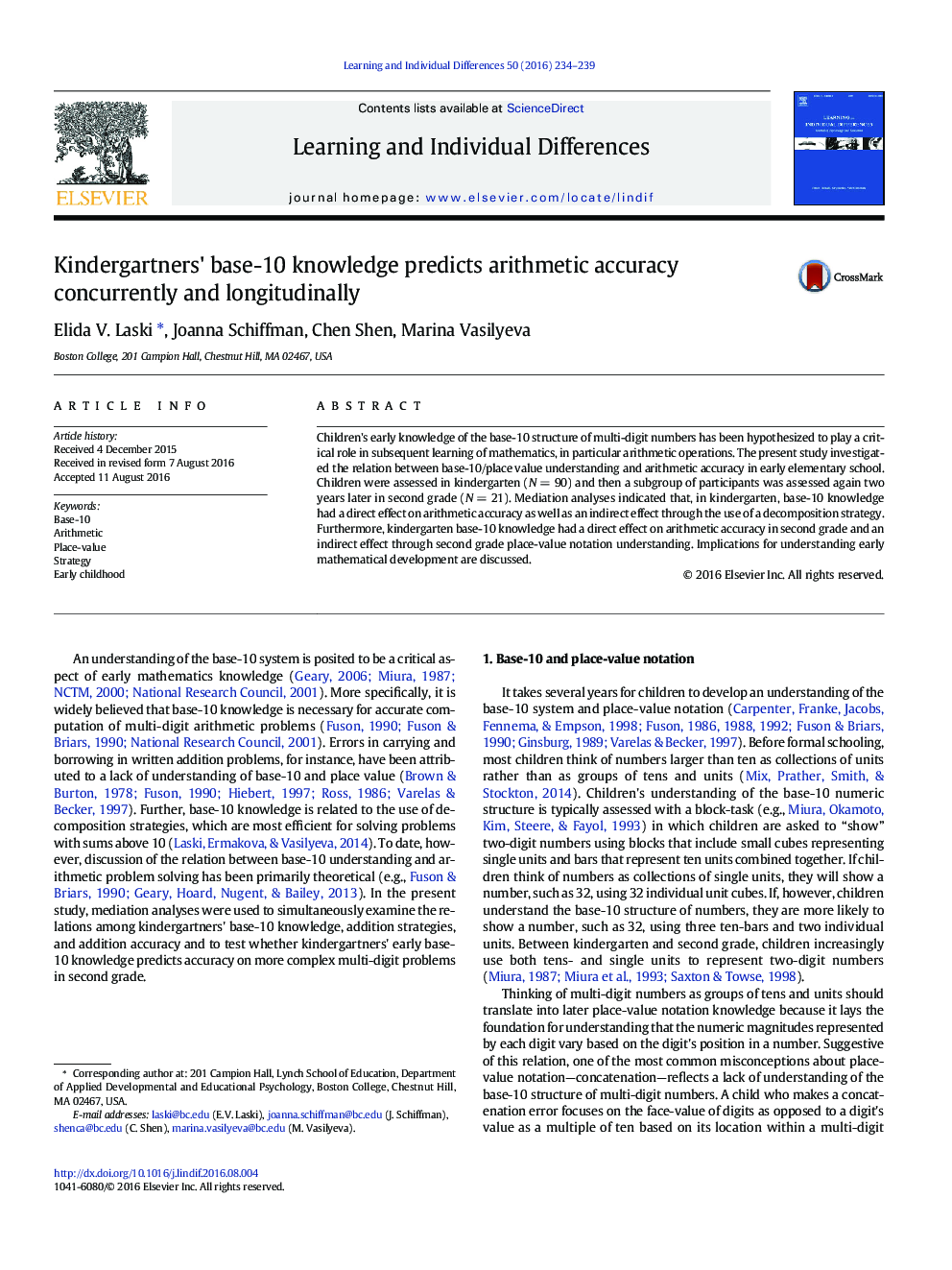| Article ID | Journal | Published Year | Pages | File Type |
|---|---|---|---|---|
| 6844622 | Learning and Individual Differences | 2016 | 6 Pages |
Abstract
Children's early knowledge of the base-10 structure of multi-digit numbers has been hypothesized to play a critical role in subsequent learning of mathematics, in particular arithmetic operations. The present study investigated the relation between base-10/place value understanding and arithmetic accuracy in early elementary school. Children were assessed in kindergarten (NÂ =Â 90) and then a subgroup of participants was assessed again two years later in second grade (NÂ =Â 21). Mediation analyses indicated that, in kindergarten, base-10 knowledge had a direct effect on arithmetic accuracy as well as an indirect effect through the use of a decomposition strategy. Furthermore, kindergarten base-10 knowledge had a direct effect on arithmetic accuracy in second grade and an indirect effect through second grade place-value notation understanding. Implications for understanding early mathematical development are discussed.
Keywords
Related Topics
Social Sciences and Humanities
Psychology
Developmental and Educational Psychology
Authors
Elida V. Laski, Joanna Schiffman, Chen Shen, Marina Vasilyeva,
